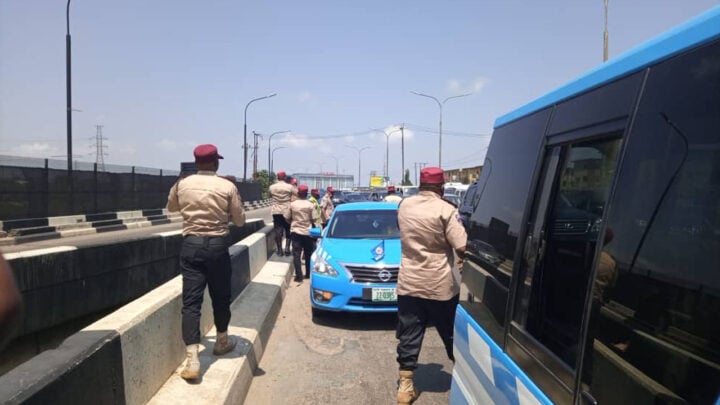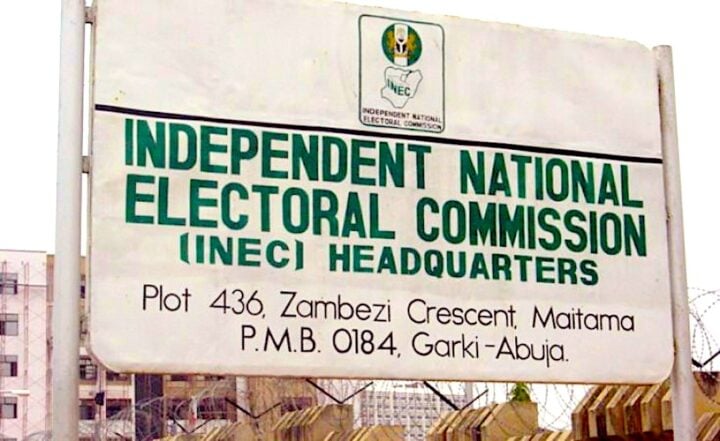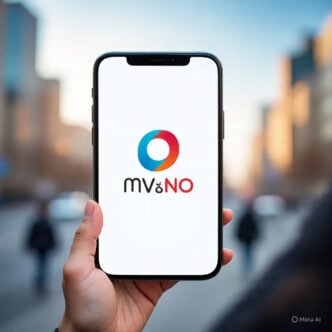BY OGUNTOYE OPEYEMI
In today’s Nigeria, the experience of dealing with the Federal Road Safety Corps (FRSC) as a motorist can often feel unnecessarily punitive. In many instances, when officers of the FRSC apprehend a driver for something as minor as a faulty brake light, they insist on dragging the vehicle to the nearest FRSC office. This practice is not only inconvenient but also almost unheard of in most developed nations. Drivers are subjected to treatment that borders on criminalisation for trivial infractions, such as faded number plates — an issue that is not caused by the driver but often by poor-quality production and lack of standardisation.
If the FRSC ensured the provision of proper, standardised number plates, such infractions would hardly arise. More importantly, there would be far less tension if officers simply issued tickets for such minor offenses or allowed on-the-spot payment after clearly explaining the violation to the motorist.
Unfortunately, the reality is different. Many officers go as far as entering a motorist’s vehicle uninvited, compelling them to follow them to an FRSC office. Once there, drivers are sometimes confronted with additional, often unrelated charges, subjected to long delays, and even threatened. In a democracy governed by the rule of law, such heavy-handed tactics should have no place, and citizens should not be subjected to these degrading experiences.
Advertisement
A comparison with Lagos state’s approach to traffic management shows that a better system is possible. In recent years, the operations of the Lagos State Traffic Management Authority (LASTMA) have been restructured. Officers are now largely restricted to traffic control duties, while many traffic violations are handled digitally. The state government has installed cameras at strategic points, which automatically detect traffic offenses as vehicles pass by. Offenders are then notified via text or email and can pay their fines at their convenience.
This system not only reduces face-to-face confrontations but also eliminates the possibility of roadside extortion. Motorists can continue to their destinations whether work, appointments, or emergencies without being unduly delayed. The FRSC’s current methods stand in stark contrast to this approach. Worse still, there are instances where FRSC officers allegedly invent violations that never occurred, simply to penalise or intimidate drivers. Such practices undermine public trust and must be addressed if the agency is to be seen as a credible enforcer of traffic laws.
Nigerians are no strangers to bureaucratic inefficiency. For years, citizens have endured the frustrating delays, stress, and excuses from the federal ministry of interior. During the first term of former President Muhammadu Buhari, the minister in charge of such services gained an unfortunate reputation as the “holiday minister” because the public only seemed to hear from him when public holidays were announced. This perception persisted until 2019.
Advertisement
When former Osun state governor Rauf Aregbesola was appointed minister, there was initial optimism that he would reform the passport issuance process, making it faster and less stressful. Unfortunately, these hopes were dashed. The reality was a prolonged struggle, and up until the end of his tenure, Nigerians continued to share horror stories about their experiences with the Nigerian Immigration Service. These complaints included systemic corruption, deliberate delays in issuing passports both locally and abroad, and exploitation of desperate applicants.
Nigerians living overseas have often had to travel from one city to another — sometimes across countries — to complete biometric capturing, incurring huge expenses on accommodation and transport. In some cases, officials charged five times the official fee to expedite processing for privileged clients. For the average Nigerian, excuses about “technical delays” or “system downtime” became standard responses from immigration offices.
The transformation came with the appointment of Olubunmi Tunji-Ojo as minister. Within a year, passport processing times were drastically reduced, both for Nigerians at home and abroad. This rapid improvement demonstrated that previous inefficiencies were not inevitable but rather the result of poor leadership and a lack of will to implement reforms. Tunji-Ojo’s success is a reminder that with the right commitment, even long-standing administrative bottlenecks can be resolved.
Unfortunately, the FRSC’s handling of driver’s licences now mirrors the pre-reform passport crisis. Many Nigerians wait six months to a year after applying for a driver’s licence, despite paying increased fees. This is especially frustrating given that the Nigerian driver’s licence is a simple plastic card with no advanced biometric or electronic capabilities.
Advertisement
Despite this, the FRSC has failed to produce and deliver licences promptly. This inefficiency recalls the frustrations Nigerians once endured with the passport office. To add insult to injury, some FRSC officers reportedly harass motorists for using the official print-out issued by the agency while waiting for the delayed physical card. This is deeply unfair, as the delay is entirely the agency’s fault.
Ironically, several Nigerian states are far more efficient at producing identification cards than the FRSC, despite having smaller budgets and workforces. The Lagos State Residents Registration Agency (LASRRA), for example, issues its card within four weeks of application. The process is straightforward, transparent, and resistant to corruption. At least eight states now issue state identification cards, and none are as difficult or expensive to obtain as the Nigerian driver’s licence.
Internationally, the standard practice is for driver’s licences to be issued immediately after capturing or mailed to the applicant’s address within two weeks. In Nigeria, however, after paying and completing biometric capture, applicants often wait for months. Even when notified that their licence is ready, they may face unnecessary manual steps during collection — including demands for passport photographs or additional payments. These extra charges, in a system designed to be seamless, suggest either a breakdown in oversight or entrenched corruption.
Such inefficiencies erode public confidence in the FRSC’s willingness or ability to reform. The agency must recognise that driver’s licences are not just administrative documents; they are essential for mobility, employment, and legal compliance.
Advertisement
Broader lessons can be drawn from this issue. Reforms in ministries, agencies, and local government bodies collectively determine whether a nation progresses or stagnates. For President Bola Tinubu’s government to meet its policy goals, agencies like the FRSC must align with his vision and work to deliver tangible benefits to the public. Continued inefficiency in the FRSC undermines public perception of the entire federal government.
The successes of other agencies offer a blueprint. The Nigerian National Petroleum Company Limited (NNPC Ltd.), the Nigerian Education Loan Fund (NELFUND), the Credit Corporation of Nigeria (CrediCorp), and the reformed Nigerian Immigration Service have all taken steps that have won public approval. Such visible progress reflects positively on the federal administration and strengthens public trust.
Advertisement
But when underperforming leaders remain in office, inefficiency becomes entrenched. If former President Buhari had replaced Aregbesola sooner, passport reforms could have been implemented years earlier, sparing Nigerians unnecessary hardship.
When leaders fail to deliver results, refuse to enforce necessary reforms, or neglect to align with the government’s broader policy agenda, they should be replaced. Nigeria is home to many capable professionals who could bring fresh energy and competence to public service. Keeping ineffective officials in place only prolongs public frustration.
Advertisement
The FRSC must urgently overhaul its driver’s licence system — from application to issuance — ensuring it is transparent, efficient, and citizen-focused. But this alone will not be enough. The agency must also reform its enforcement culture, ending the practice of roadside harassment for minor or fabricated infractions, and adopt modern, technology-driven methods of traffic management similar to those successfully implemented in Lagos.
Processes must be streamlined to remove unnecessary bureaucracy and opportunities for extortion, while service delivery must prioritise the dignity and time of Nigerians. This means embracing full digitalisation, strict oversight of officers, and a zero-tolerance policy for corruption.
Advertisement
At the leadership level, FRSC management must align with the federal government’s renewed hope agenda, ensuring that every reform effort produces tangible benefits for citizens. Where leaders fail to deliver, they must be replaced with competent individuals who can drive change and restore public trust.
Nigerians deserve a Federal Road Safety Corps that treats motorists with fairness, delivers essential services without delay, and contributes positively to the nation’s progress. Anything less is a disservice to the country and its people.
Oguntoye Opeyemi, an engineer, writes from Lagos. He can be contacted on Twitter: @EquityOyo
Views expressed by contributors are strictly personal and not of TheCable.









